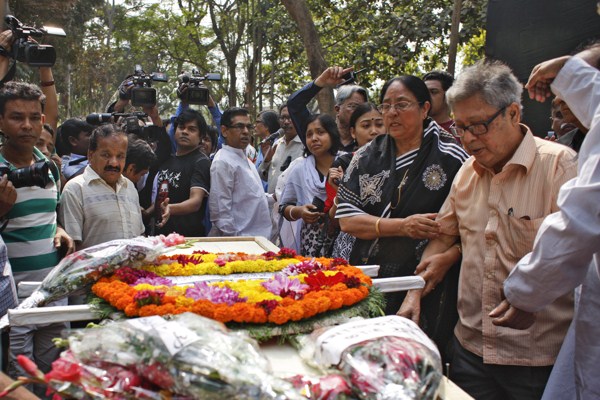After months of political tensions that have left more than 100 people dead since the beginning of the year, Bangladesh again made headlines last week when an American blogger known for his criticisms of fundamentalist Islam was hacked to death by a group of attackers in the capital, Dhaka. The murder of Avijit Roy, coupled with the country’s continuing backdrop of seemingly endemic political instability, have overshadowed Bangladesh’s achievements in social development, which include providing basic health care, curbing child mortality, improving nutritional levels of small children and simultaneously reducing the country’s birth rate. Worse still, there is little reason to expect reconciliation, whether on the political or religious front.
Bangladesh’s political impasse stems from the unremitting hostility between the country’s two principal political parties, the Awami League and the Bangladesh Nationalist Party (BNP), and their respective leaders, Prime Minister Sheikh Hasina and former Prime Minister Khaleda Zia. The long-time rivals have traded power for the past two decades, but tensions between them gained steam last year and have spiked in the past two months.
In fact, since general elections in January 2014, which the BNP boycotted on the grounds that an interim government was not appointed to oversee the voting, Bangladesh has been in the grip of political turmoil. This January, on the eve of the first anniversary of those problematic elections, Hasina chose to confine Zia to her party’s headquarters in the capital, Dhaka, amid a broad crackdown on the BNP, with some 10,000 BNPmembers and supporters arrested and incarcerated during protests.

